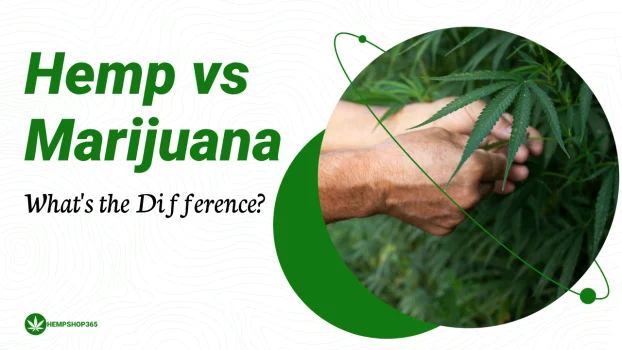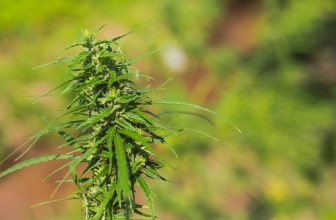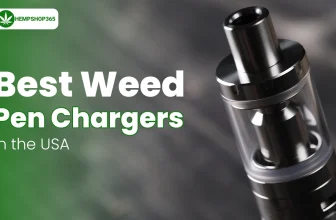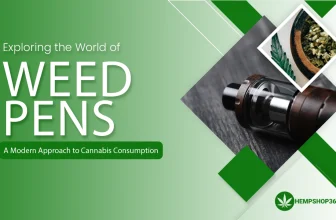Hemp and marijuana are two plants that are often confused with each other. Both are members of the Cannabis sativa species, but they have some key differences. Hemp is a non-psychoactive plant with a wide range of industrial and commercial applications. It can be used to make textiles, paper, building materials, food, and more. Marijuana, on the other hand, is a psychoactive plant that is typically used for recreational or medicinal purposes. It contains high levels of THC, the compound that produces a “high” feeling.
In this blog post, we will take a closer look at the similarities and differences between hemp and marijuana. We will explore their history, uses, legality, and potential benefits. By the end of this post, you will have a clear understanding of these two fascinating plants and their place in the world.
Keynotes:
- Both are Cannabis sativa plants, share appearance, cultivation needs, and historical significance.
- THC content – Hemp (<0.3%, non-psychoactive) vs. Marijuana (>0.3%, psychoactive).
- Hemp – textiles, paper, food, CBD; Marijuana – medical, recreational (intoxication).
- Hemp – legal in most countries; Marijuana – varies greatly, from illegal to fully legalized.
Hemp vs Marijuana: What are the Similarities and Differences?
Hemp and marijuana are both plants of the Cannabis sativa species. They share some similarities, including their botanical origin, physical appearance, chemical composition, cultivation requirements, environmental impact, historical significance, legal ambiguity, economic potential, and research interest. However, they also have some key differences, including their THC content, which determines their psychoactive effects.
In short, hemp and marijuana are both versatile plants with a wide range of potential applications. Understanding their similarities and differences can help us appreciate their unique contributions and foster a more informed approach to their cultivation, utilization, and future potential.
What is Hemp?
Hemp, a champion of versatility, boasts low THC content (below 0.3%). This non-psychoactive cousin of marijuana shines in various fields. Its sturdy fibers weave into sturdy textiles and eco-friendly paper. Nutrient-rich seeds enrich our kitchens, while their potential medical benefits pique scientific curiosity. Think pain relief, inflammation reduction, and even anxiety management.
What is Marijuana?
Marijuana, known for its psychoactive properties, contains significantly higher THC levels. Its fame stems from its intoxicating effects, accessed through smoking, vaporizing, or edibles. While also explored for medical uses, recreational consumption holds sway in many cultures.
Hemp vs Marijuana Difference
| Feature | Hemp | Marijuana |
|---|---|---|
| THC Content | > 0.3% (psychoactive) | |
| Uses | Industrial, nutritional, medical (e.g., pain relief) | Medical, recreational (intoxicating effects) |
| Legality | Legal in most countries | Varies significantly by country (illegal in many) |
| Chemical Profile | Different profile of cannabinoids and terpenes | Different profile of cannabinoids and terpenes |
| Appearance | Taller, thinner leaves | Shorter, bushier leaves |
| Seeds | Rich in protein, fiber, nutrients (edible) | Similar nutritional profile, primarily used for oil production |
| Fibers | Strong, durable, used for textiles, paper, building materials | Not typically used for fiber production |
| Medical Potential | Pain relief, inflammation reduction, anxiety relief | Similar potential; also studied for epilepsy, glaucoma, cancer |
| Recreational Use | Not intended for recreational use | Primarily used recreationally for intoxicating effects |
| Products | Textiles, paper, building materials, food, CBD oil | Medical cannabis, edibles, concentrates, CBD oil |
History of Hemp and Marijuana
Both plants share a fascinating but turbulent history. Hemp, once a celebrated crop woven into civilizations, witnessed a downfall fueled by misinformation and racist biases.
Marijuana, often conflated with hemp, faced similar demonization, further complicating their narratives. Today, understanding this intertwined past is crucial to combating misconceptions and navigating their present legal realities.
Uses of Hemp
- Textiles: Strong and durable fibers find their way into clothing, ropes, carpets, and more.
- Paper: Sustainable alternative to traditional paper production, with faster growth and less environmental impact.
- Building Materials: Hemp bricks offer insulation, fire resistance, and eco-friendly construction options.
- Bioplastics: Replacing petroleum-based plastics with biodegradable alternatives derived from hemp.
- Biofuel: Potential for renewable energy source, replacing fossil fuels with hemp-based ethanol.
- Seeds: Excellent source of protein, fiber, healthy fats, and essential nutrients. Enjoyed raw, roasted, ground into flour, or added to various dishes.
- Oil: Rich in Omega-3 and Omega-6 fatty acids, used for cooking, salad dressings, cosmetics, and more.
- Pain Relief: Potential to alleviate chronic pain from various conditions.
- Inflammation reduction: Anti-inflammatory properties may help manage symptoms of arthritis and other inflammatory diseases.
- Skincare: Hemp seed oil's moisturizing and anti-inflammatory properties benefit various skin conditions.
Uses of Marijuana
- Pain Relief: Effective for chronic pain management, used in medical cannabis products.
- Nausea and Vomiting: Often prescribed to mitigate these symptoms associated with cancer treatment and other illnesses.
- Glaucoma: Studies suggest its ability to lower eye pressure may benefit glaucoma patients.
- Muscle Spasticity: Can help manage muscle spasms and stiffness associated with conditions like multiple sclerosis.
- Appetite Stimulation: Used to increase appetite in patients with HIV/AIDS and other wasting syndromes.
- Psychoactive Effects: THC content induces euphoria, relaxation, and altered perception, commonly sought for recreational use.
- Social Consumption: Shared in social settings to enhance mood and create a sense of connection.
- Stress Relief: Some users report stress reduction and anxiety relief from recreational marijuana use.
Types of Hemp
- Industrial Hemp: Grown primarily for its strong fibers used in textiles, paper, construction materials, and bioplastics.
- Food-Grade Hemp: Used for its nutritious seeds and oil, rich in protein, fiber, and healthy fats.
- Varieties: Popular varieties include Futura 75, USO-31, and Santhica.
Types of Marijuana
- Sativa Strains: Typically taller, produce uplifting and energetic effects, often associated with creativity and focus. Example: Jack Herer.
- Indica Strains: Shorter, known for relaxing and pain-relieving effects, promoting sleep and stress relief. Example: Northern Lights.
- Hybrid Strains: A blend of Sativa and Indica, offering diverse effects depending on the specific crossbreed. Example: Blue Dream.
Legality
The legal landscape surrounding hemp and marijuana presents a complex map. Hemp, with its low THC content, enjoys broader acceptance, legalized in most countries. Conversely, marijuana’s legal status varies significantly across nations, ranging from complete prohibition to recreational and medical legalization. Understanding these intricacies is essential for responsible engagement with either plant.
CBD
Both hemp and marijuana produce cannabidiol (CBD), a non-psychoactive compound with promising therapeutic potential. While often associated with marijuana, hemp plants, boasting higher CBD concentrations, are increasingly utilized in the production of CBD-based products. Grasping CBD’s role in both plants is key to navigating the growing market for its potential health benefits.
Conclusion
Remember: While hemp offers numerous benefits, it’s important to consult healthcare professionals before using it for medical purposes. Additionally, legality regarding hemp cultivation and products varies by region, so always follow local regulations.
FAQ's
Is hemp the same as marijuana or cannabis?
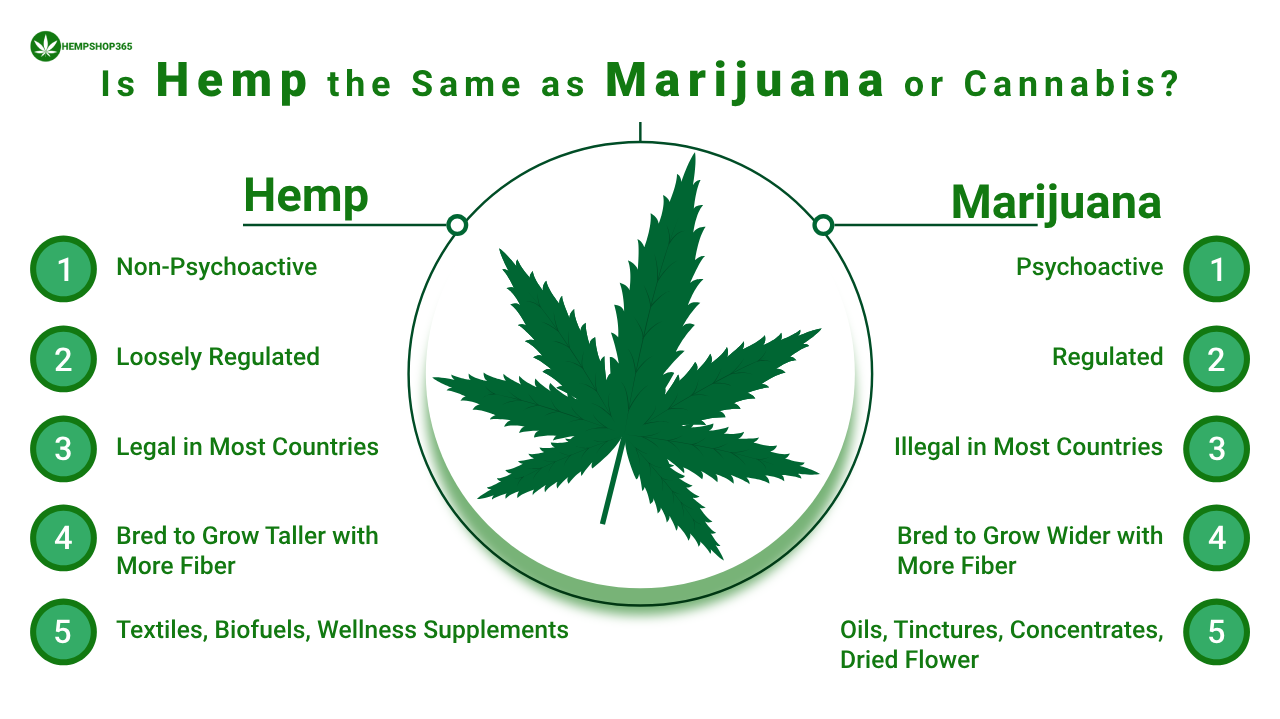
Is hemp better to smoke?
No, smoking hemp is not advisable. While hemp contains trace amounts of THC (less than 0.3%), it’s not intended for smoking and lacks the psychoactive effects of marijuana. Smoking anything carries health risks, so it’s best to avoid inhaling any plant material, including hemp.
Which is stronger CBD or hemp?
Technically, neither CBD nor hemp is “stronger,” as these terms don’t directly compare. CBD is a specific compound found in both hemp and marijuana, while hemp is the entire plant. However, hemp generally contains higher concentrations of CBD than marijuana due to its breeding for non-psychoactive properties. So, if you’re seeking CBD for its potential health benefits, hemp-derived CBD products are typically the preferred choice.
What is hemp used for?
Hemp has a multitude of uses, spanning across various industries:
- Textiles: Strong and durable fibers are used for clothing, rope, canvas, and even sustainable alternatives to cotton.
- Paper: Eco-friendly option compared to traditional paper production, requiring less water and chemicals.
- Building materials: Hemp bricks offer insulation, fire resistance, and sustainable construction solutions.
- Food: Seeds are considered a superfood, rich in protein, fiber, healthy fats, and essential nutrients. Oils are used for cooking, salad dressings, and cosmetics.
- Bioplastics: Renewable alternative to petroleum-based plastics, providing biodegradable options.
- Biofuel: Potential source of renewable energy, replacing fossil fuels with hemp-based ethanol.
- Medical: Research explores its potential in pain relief, inflammation reduction, and various skin conditions.
Why is hemp better?
Hemp offers several advantages:
- Sustainable: Fast-growing, requires less water and chemicals compared to other crops, improves soil health.
- Versatile: Offers diverse applications across various industries, promoting economic potential.
- Eco-friendly: Biodegradable products lessen environmental impact of plastics and paper production.
- Non-psychoactive: Safe for use by various individuals, including those sensitive to THC’s psychoactive effects.
- Nutritional: Seeds and oil provide valuable nutrients, contributing to a healthy diet.

